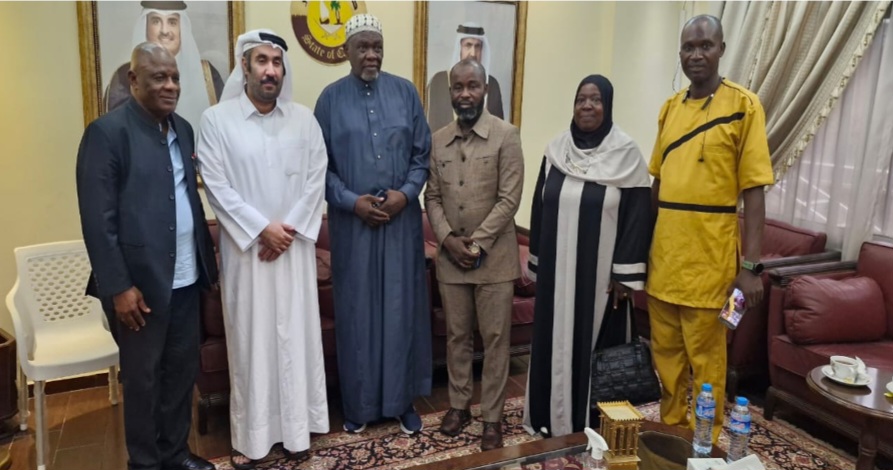The National Muslim Council of Liberia has vehemently denounced the alleged Israeli airstrike in Doha, Qatar, characterizing it as an “unprovoked attack” resulting in the deaths of Palestinian officials and a Qatari citizen. This condemnation follows reports of Israeli bombers targeting a residence purportedly housing members of the Hamas negotiating team, leading to the loss of six lives. The council’s Secretary-General, Kuku Reeves, expressed solidarity with Qatar, emphasizing the Liberian Muslim community’s unwavering support for the nation’s peace-building efforts in the Middle East. He condemned the attack as an act of aggression aimed at disrupting the delicate peace process between Israelis and Palestinians. The Liberian Muslim community also offered condolences to the families of the victims, the Qatari people, and all those impacted by this tragic incident.
This statement marks the first public response from the National Muslim Council of Liberia since the escalation of the Middle East crisis, which erupted in October 2023 with Hamas’s large-scale attack within Israel, claiming the lives of over 1,200 Israelis and resulting in the capture of numerous hostages. Israel’s retaliatory military operations in Gaza and the West Bank have reportedly caused over 65,000 Palestinian fatalities, widespread famine, and extensive destruction. Despite international mediation attempts, a ceasefire remains elusive, with the conflict engulfing regional actors like Iran, Lebanon, Syria, and Yemen.
The ongoing crisis is characterized by the continued captivity of approximately 20 Israeli hostages held by Hamas, while Israel, with the backing of the United States, has yet to demonstrate a willingness to negotiate. Adding a new dimension to the complex geopolitical landscape, 124 countries, including prominent Western nations like France, Britain, Canada, Spain, and Italy, have announced their intention to formally recognize Palestine as an independent state in October of this year. This move could significantly alter the dynamics of the conflict and the future of the peace process.
The Liberian government, while not having issued an official statement on the recent events in Doha, has historically supported a two-state solution as the foundation for resolving the Israeli-Palestinian conflict. This stance reflects the international community’s long-held belief that a two-state solution, based on the 1967 borders, is the most viable path towards a lasting peace in the region. However, the escalating violence and the hardening of positions on both sides make the realization of this goal increasingly challenging.
The alleged attack in Doha adds another layer of complexity to an already volatile situation. If confirmed, it raises serious questions about the targeting of civilians and the potential implications for international law. It also underscores the fragility of the peace process and the urgent need for a renewed commitment to de-escalation and dialogue. The international community faces the daunting task of mediating a ceasefire and facilitating meaningful negotiations to prevent further loss of life and address the underlying causes of the conflict.
The path forward remains uncertain. The escalating violence, coupled with the lack of progress in negotiations, threatens to further destabilize the region. The international community must act decisively to prevent a wider conflict and to create the conditions for a just and lasting peace. The recognition of Palestine by a growing number of countries could be a catalyst for change, but its impact will depend on the response from Israel and the United States. The situation remains fluid, with the potential for both further escalation and, hopefully, a renewed push for a peaceful resolution.














